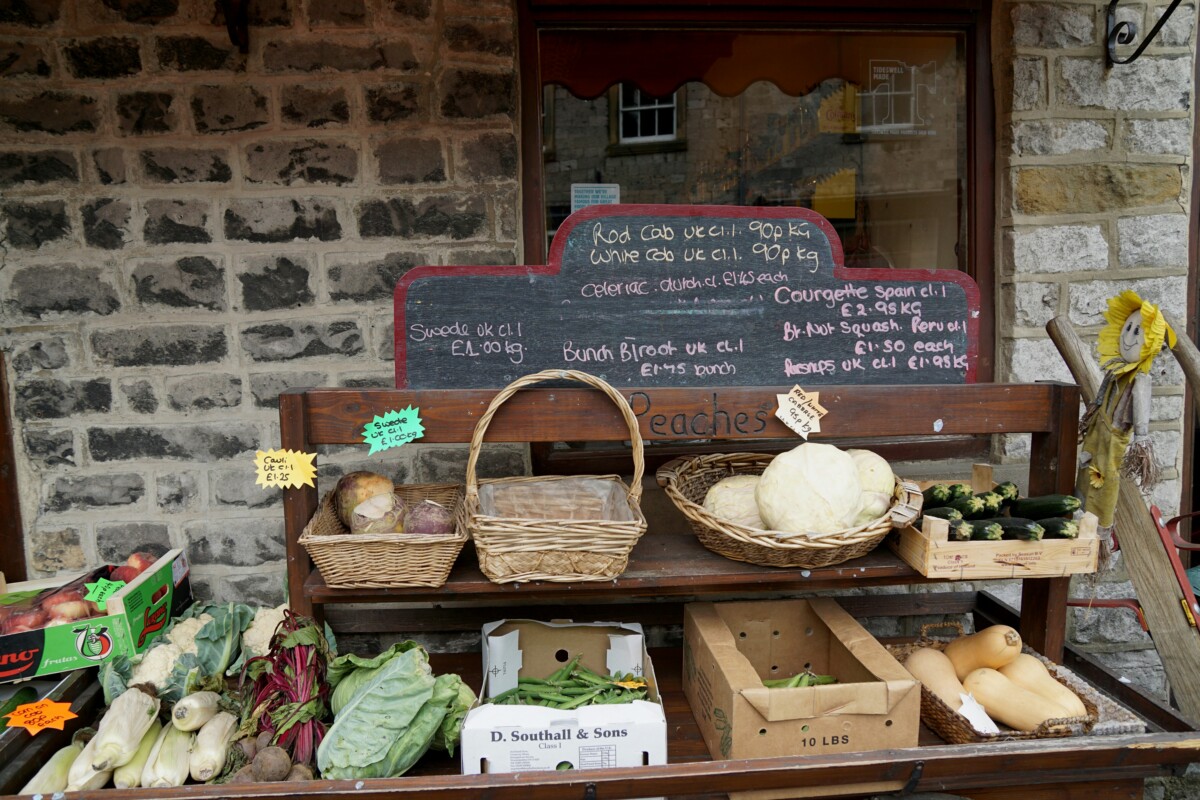Listen to the full podcast episode on YouTube, Spotify, and Apple Podcasts.
From Army Ambitions to Land Stewardship
Peter’s career path wasn’t a straight line. His early plans for a military career were derailed by injury, but that abrupt shift led him to discover the complex and rewarding world of rural estate management. Today, Peter serves as Head of Sustainability & Innovation at Gascoyne Estates, where his “generalist with a brain” approach underpins his success in driving sustainability across a diverse portfolio of land-based operations.
“Every job is a sustainability job.”
This mindset runs through the organisation, with every team member — from foresters to property managers — contributing to the estate’s environmental and carbon strategies.

The Challenge: A Finite Resource Under Pressure
Land is finite, and in Peter’s words, the famous (and possibly misattributed) Mark Twain quote still rings true:
“Buy land — they’re not making it anymore.”
But today, land isn’t just for farming. It’s expected to deliver:
- 🥕 Food production
- 🌳 Nature restoration
- 🌞 Renewable energy generation
- 🏡 Housing and infrastructure development
- 🌾 Carbon sequestration
Balancing these competing demands is at the heart of Peter’s work — and a critical challenge for the entire sector.
Food Security: Redefining the Debate
Peter reviewed a report from the Agricultural Industries Confederation (AIC) advocating for an independent Food Security Committee to safeguard domestic food production. But as Peter pointed out, the definition of food security itself remains worryingly vague.
“Do we actually have a production problem, or do we have a distribution problem?”
Peter sees the real challenge not just in growing more food but in optimising how we use land, ensuring food reaches those who need it, and reducing waste. He highlights:
- 🚜 Over 1.5 million tonnes of food wasted before leaving farms.
- 🍽️ Millions in the UK relying on food banks, raising fundamental questions about access, affordability, and equity.
- 🌾 Rising demand for non-food crops (e.g., energy crops) further squeezes available land.
Embracing Complexity: No Simple Fixes
If there’s one theme Peter returns to, it’s that land management is inherently complex. Every decision involves trade-offs — between climate goals, biodiversity needs, food security, economic viability, and community concerns.
“We need to get comfortable with the grey area.”
Peter warns against the search for overly simplistic solutions to deeply interconnected problems. Instead, he advocates for:
- 🔄 Accepting that perfect solutions are rare — iterative, adaptive approaches are essential.
- 👥 Involving landowners, farmers, communities, and businesses in shaping strategies, rather than top-down mandates.
- 📣 Emphasising proactive transparency — disclosing not only successes but challenges and dilemmas too.
Collaboration is Key 🤝
Despite the complexity, Peter is optimistic — largely thanks to the collaborative culture within the land management sector. Unlike sectors driven by cutthroat competition, landowners and estate managers routinely share best practices, visit each other’s sites, and learn through cooperation.
- 🌍 Initiatives like Groundswell Festival showcase regenerative farming at scale.
- 🐑 Farmer clusters enable peer-to-peer learning on biodiversity and water quality.
- 🏞️ Groups like the Environmental Farmers Group help farmers access emerging natural capital markets, offering new revenue streams for sustainable practices.
“There’s a real desire for collaboration at every level.”

Long-Term Vision vs Short-Term Politics
One of Peter’s most critical observations is the mismatch between landowners’ long-term outlook and short-term political cycles.
“We’re making decisions today that will only bear fruit in fifty to a hundred years.”
He urges government to:
- 🛣️ Set long-term, stable policy frameworks.
- 🏛️ Provide certainty on subsidy schemes, environmental incentives, and tax policies.
- 🌱 Engage with landowners as long-term stewards, not short-term delivery agents.
Without this stability, landowners hesitate to invest in ambitious sustainability projects — fearing the rug could be pulled from under them with each political cycle.
The Magic Wand Moment ✨
When asked what single change he’d make to the commercial world, Peter’s answer reflects his pragmatic realism:
“Embrace complexity. Be willing to get it wrong.”
He champions a culture where businesses (and governments) feel confident experimenting, learning from mistakes — and crucially, being open about them. This honest, iterative approach, Peter argues, is the only way to navigate the messy realities of land use, food security, and sustainability.
Conclusion
Peter’s journey — from aspiring officer to sustainability leader — illustrates the power of adaptability, curiosity, and a commitment to servant leadership. His work at Gascoyne Estates offers a microcosm of the broader national challenge: how to manage finite land in a way that balances food, nature, carbon, energy, and housing — all while ensuring rural communities thrive.
For businesses, government, and society alike, Peter’s message is clear:
“There are no easy answers. But if we work together, embrace the complexity, and stay transparent, we stand a much better chance of getting it right.”
Building Trust, Together
👉 Join The Anti-Greenwash Charter and join a growing movement of responsible communicators who are raising the bar for integrity in sustainability storytelling.
Want to be a guest on our show?
Contact Us.
The Responsible Edge Podcast
Queensgate House
48 Queen Street
Exeter
Devon
EX4 3SR
Recognition.
Subscribe Now.
Subscribe below to receive a monthly email featuring all new episodes of The Responsible Edge Podcast.
© 2025. The Responsible Edge Podcast. All rights reserved.
The Responsible Edge Podcast® is a registered trademark of The Anti-Greenwash Charter Ltd.
Created by The Anti-Greenwash Charter
© 2025. The Responsible Edge Podcast


